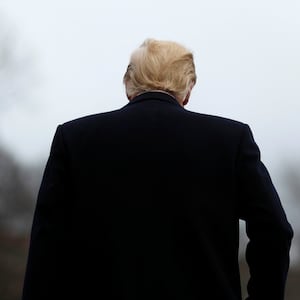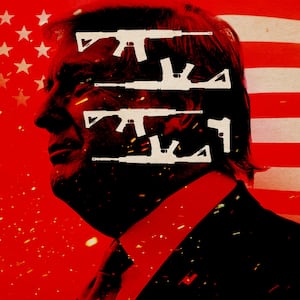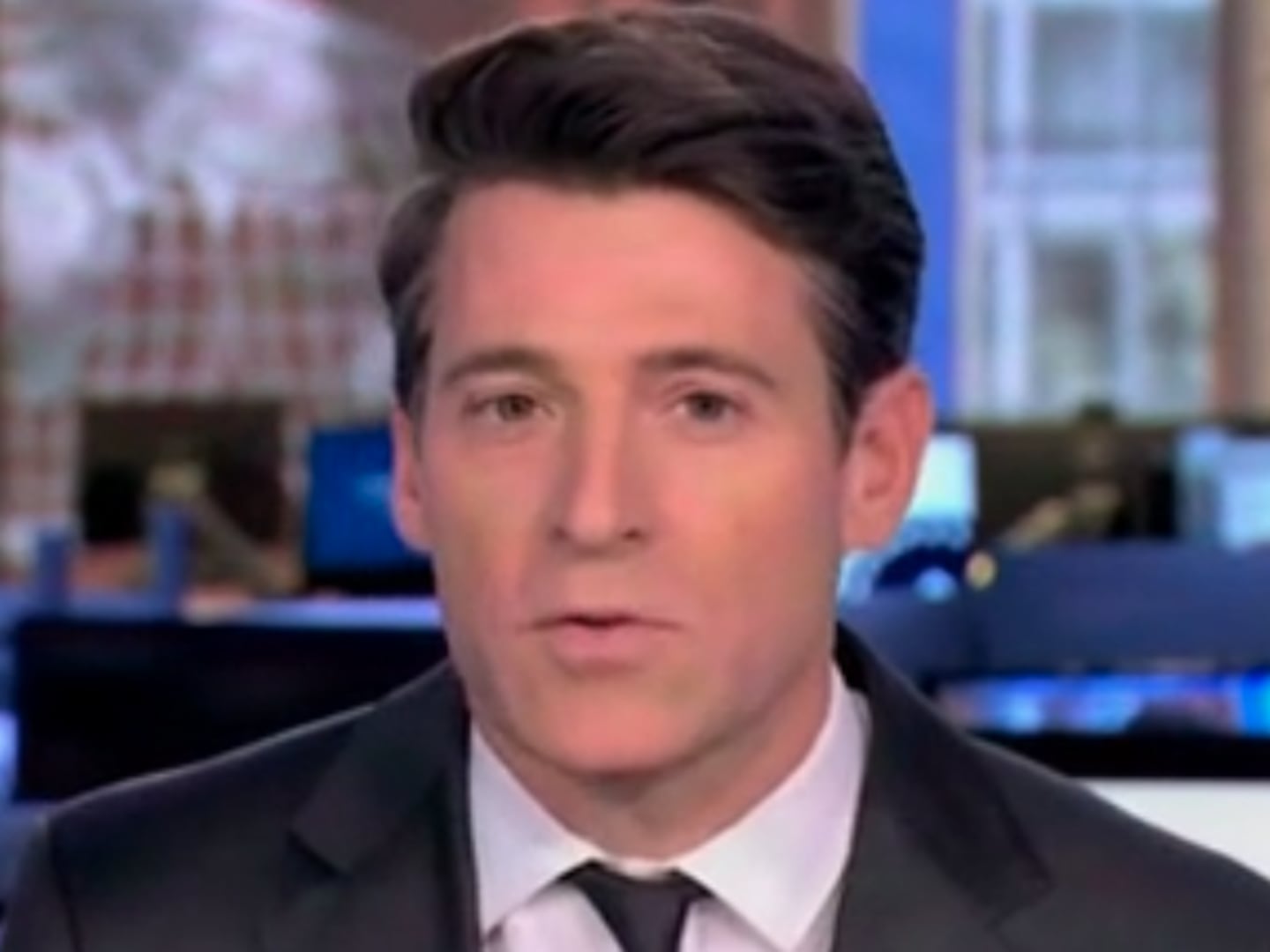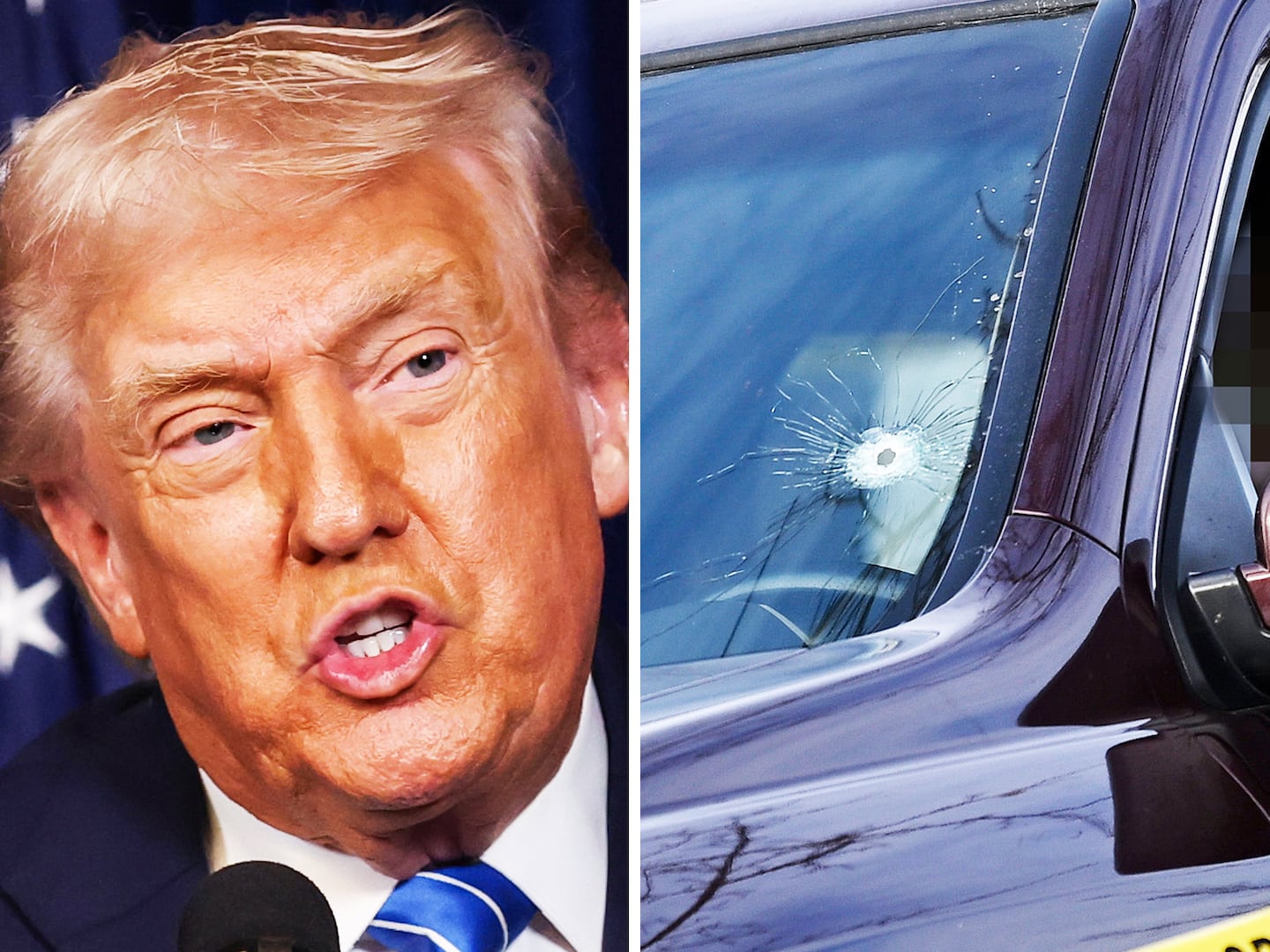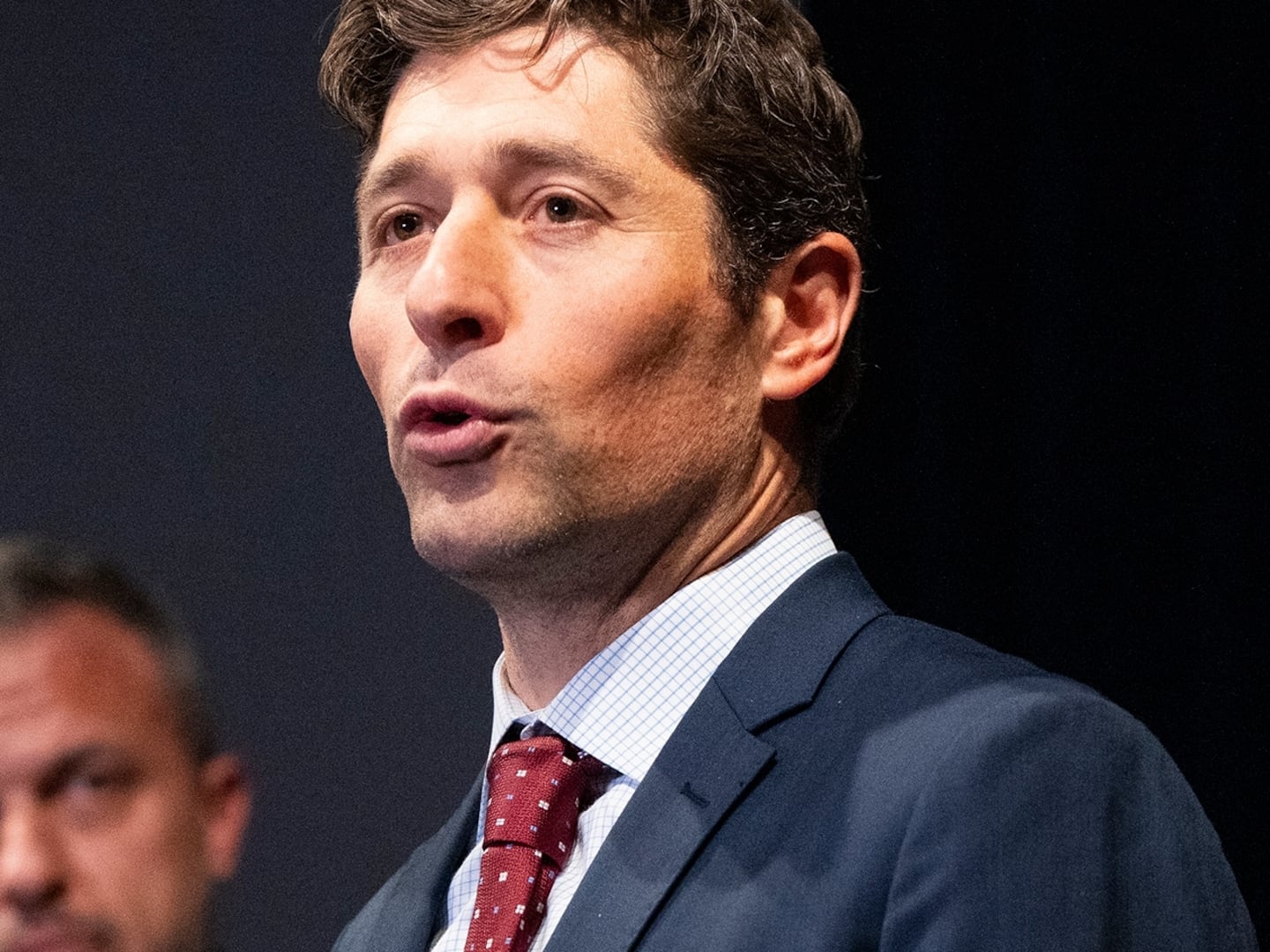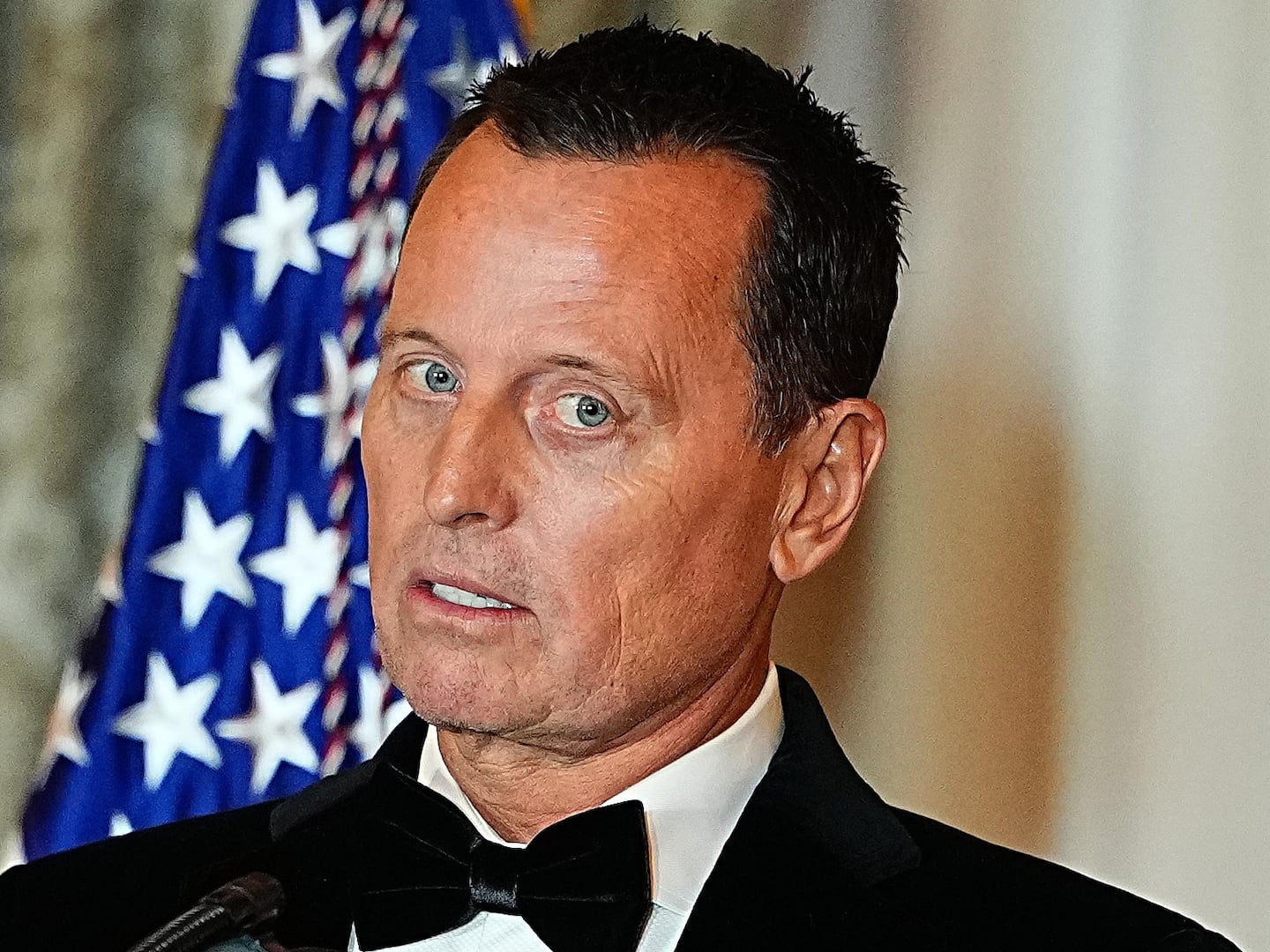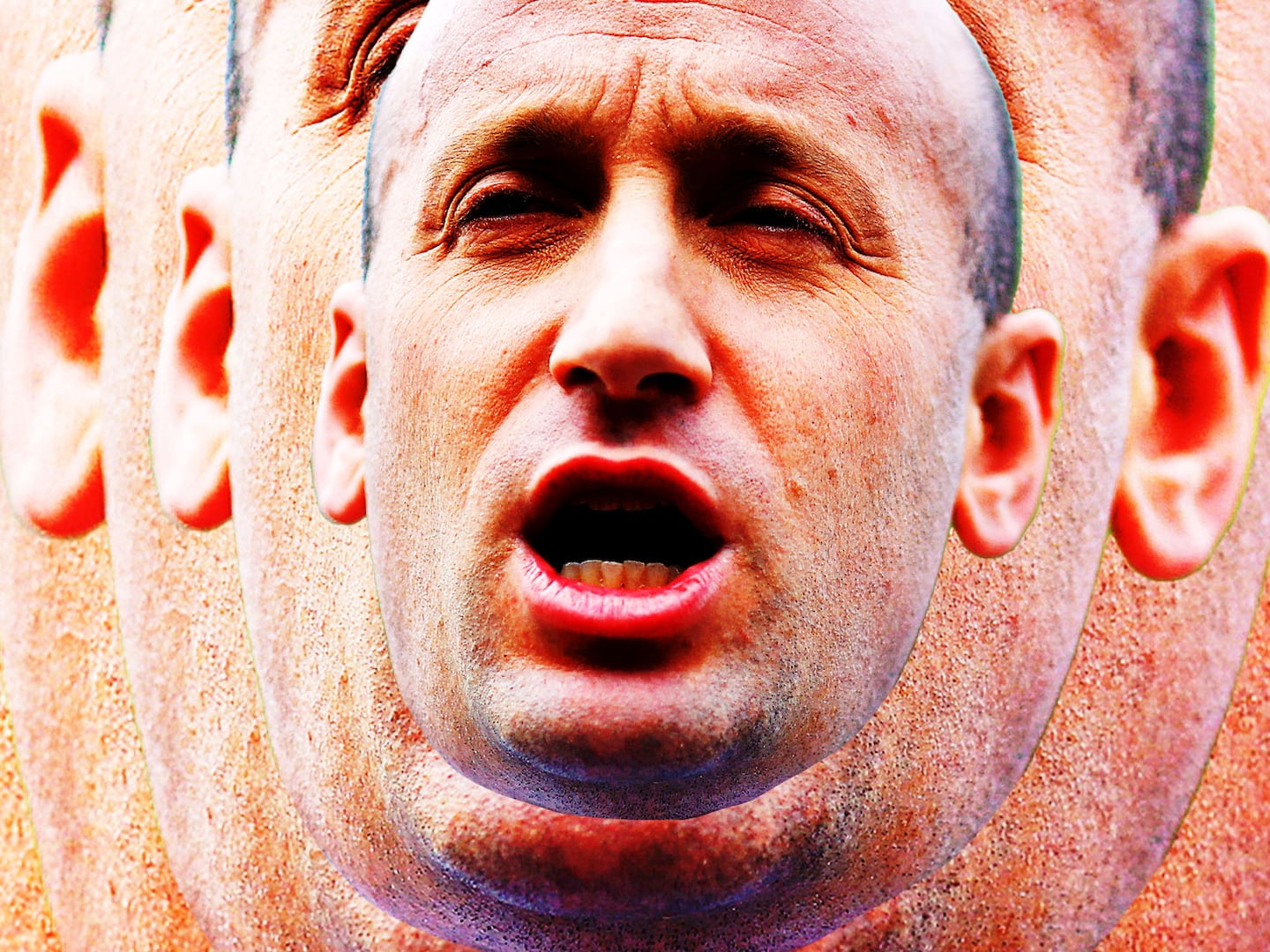It’s been roughly half a month since dual mass shootings in Dayton, Ohio, and El Paso, Texas, forced the president, his administration, and Capitol Hill lawmakers into yet another debate about gun control. And in those short weeks, Donald Trump has already started to pump the brakes on his support for background checks legislation the likes of which, he said, “we’ve never had before.”
“He’s started to move on,” a White House official conceded, adding that they haven’t heard the president discussing the topic in recent days with the same urgency or frequency that punctuated the immediate aftermath of the high-profile shootings. “If it were up to the president, he’d do background checks today. But that’s not how it works, and he loses patience [quickly].”
So far this month, President Trump has posted four tweets directly addressing the need for more robust background checks for gun purchases, one fewer than he’s posted about Diamond & Silk, the Trump-loving, self-described “Video Vloggers” who make regular appearances on Fox News and Fox Business.
That Trump’s attention span drifted elsewhere before Congress could even reconvene to debate gun control reform was hardly a surprise. The president has promised to tackle background checks before, only to drop the idea once the mass shooting that precipitated his apparent interest faded from the news cycle. Two sources close to the president each said they had spoken to Trump in the past week, and neither recalled him saying anything about seriously pushing expanding background checks.
But for officials on the Hill, Trump’s latest backtrack still serves as a notable illustration of just how quickly he can paralyze the legislative process—even on issues with wide public support.
“There is nothing happening,” one Senate Democratic aide, who asked to be referred to as a "severely depressed staffer who has been through too many of these," said of the current state of negotiations. “This is all Trump. It is all in his hands. No one is talking to Republicans or their offices. If the president says, ‘Yes I wanna do it,’ it gets 85 votes. If he doesn't, it doesn't.”
So far, the president has not said he wants to “do it.” There have been no conversations with Senator Joe Manchin (D-W.V.)—the chief Democratic co-sponsor on the most bipartisan piece of background check legislation—since the two talked early last week. White House staff have not had substantive follow up conversations with Senate staff since they convened to discuss the Manchin-Pat Toomey legislation, aides say. And a senior Democratic House aide confirmed that there was not “much movement” on their end of the Capitol either.
Senate Majority Leader Mitch McConnell (R-KY) said in a radio interview on Aug. 8 that he had talked with the president and was “anxious” to work with him to get an outcome on guns. A spokesman for McConnell told The Daily Beast that the GOP leader and Trump talk frequently but would not say if they had spoken about prospective bills in recent days.
A source familiar with the discussions said that Democrats remain willing to work with Trump to reach a legislative compromise on guns. But they are skeptical that it might happen, aware of his tendency to backtrack after past mass shootings. The hope among Senate offices involved in the discussions is that the White House will ultimately make clear what proposals Trump can and cannot support with respect to gun legislation and that that, in turn, will set the table for possible next steps, according to the source familiar with talks.
But, so far, the president has signaled mainly that he is retreating from the idea that he can push an expanded background-checks bill through Congress. On Sunday, he told reporters, “People don't realize we have very strong background checks right now,” before arguing that the issue with gun violence was a “big mental [health] problem.”
In case there was any confusion, Trump added, “Look, I've had a great relationship with the [National Rifle Association], and I will always have a great relationship. I've been very good for the NRA.”
Though the gun rights lobby finds itself in a state of internal turmoil, its influence has not waned on the Hill or within the West Wing. The group staunchly opposes any efforts to expand background checks and quickly jumped on the phone with Trump to restate that position in the wake of the two recent mass murders. Since then, more conservative voices, including figures closely aligned with Trump, have signaled their disapproval of far-reaching legislation favored by Democratic lawmakers.
“We already have background checks on all gun transactions except those between private individuals. Spending time on this issue is a waste for anyone who really wants to help with mass shootings,” Ed Brookover, who served as a senior adviser on Trump’s 2016 presidential campaign, said on Monday.
Democratic Hill aides expect that Republicans will, ultimately, not move on legislation this time around unless it has the NRA’s endorsement. And for that reason, there is growing resignation to the idea that Senate GOP leaders will end up pushing reforms to the background checks system that nibble around the edges rather than directly expanding its scope.
One such bill was introduced by Senators Chuck Grassley (R-IA) and Ted Cruz (R-TX) during the wake of the Newtown shooting in early 2013 and reintroduced in years since. The bill increased funding for school safety measures, criminalized straw purchases, and encouraged states to report mental health records; but it did not actually limit gun ownership, at least in material ways. Another possibility is a so-called “red flag law” proposal—which would aim to keep guns out of the hands of the most dangerous people—that represents probably the maximum level of gun control that the GOP can get behind.
But Senate Minority Leader Chuck Schumer (D-N.Y.) has already said that Democrats won’t “settle” for gun action that is limited to red flag laws. On Monday, he called Trump’s “backtracks” on guns “heartbreaking” and called on McConnell to put universal background checks to a vote on the Senate floor immediately. There was no response from McConnell or Trump.
“Every reporter called me up and said this time feels different,” the Senate Democratic aide said. “I was like, am I missing something?”

